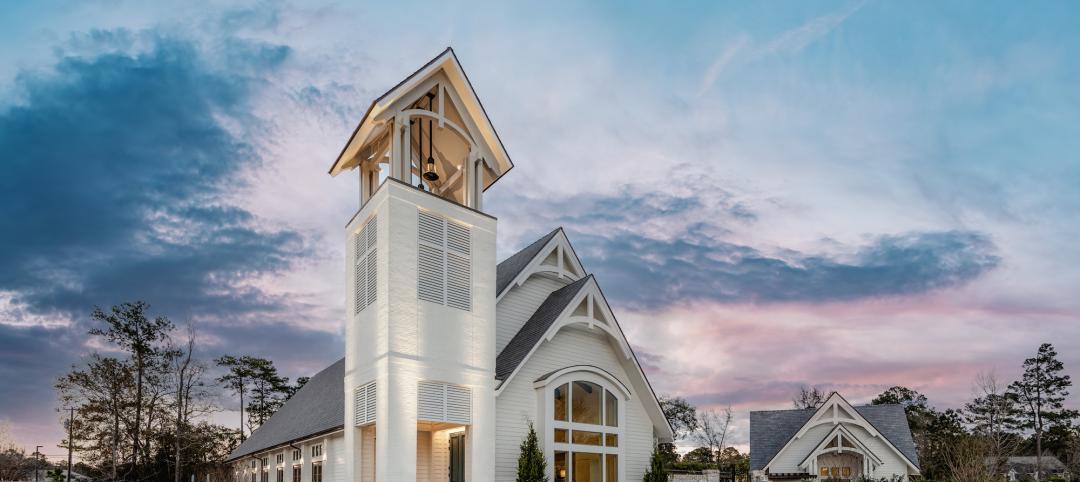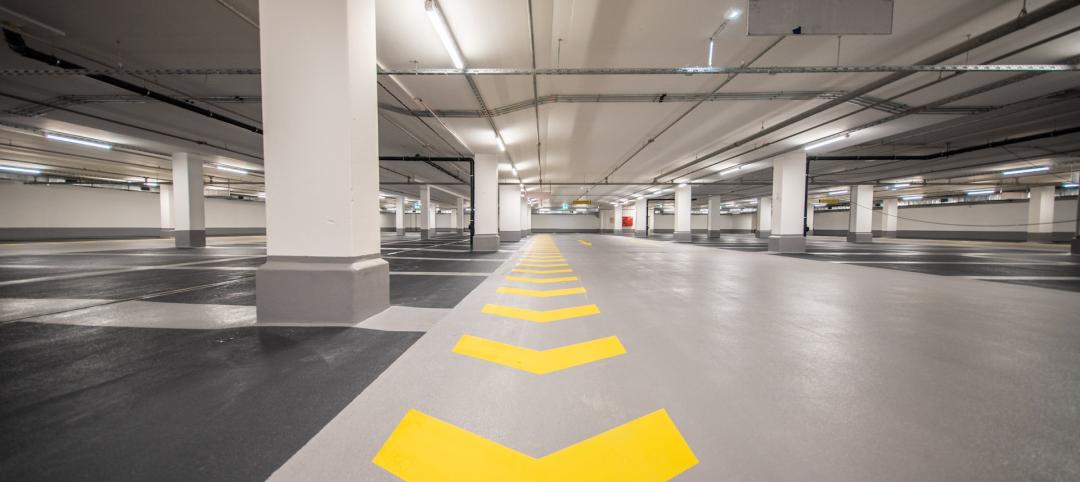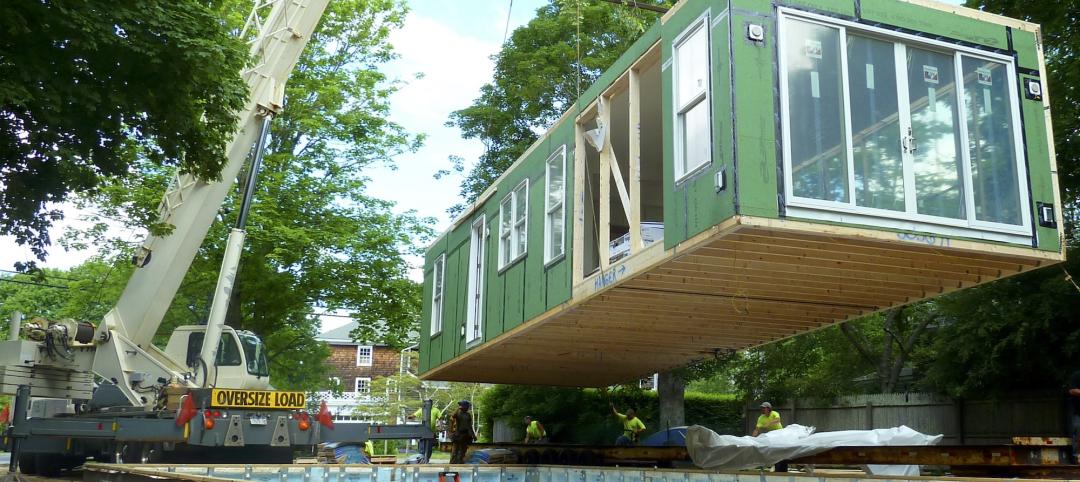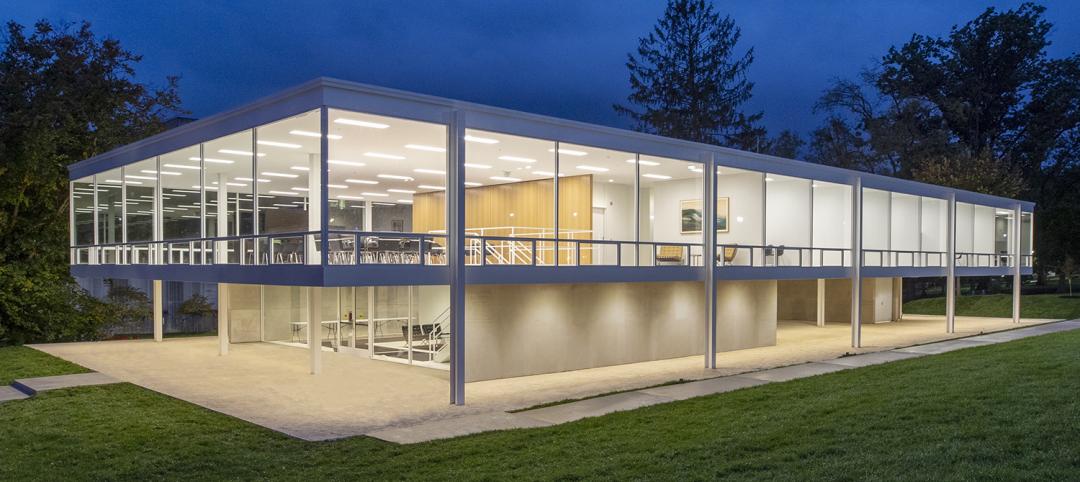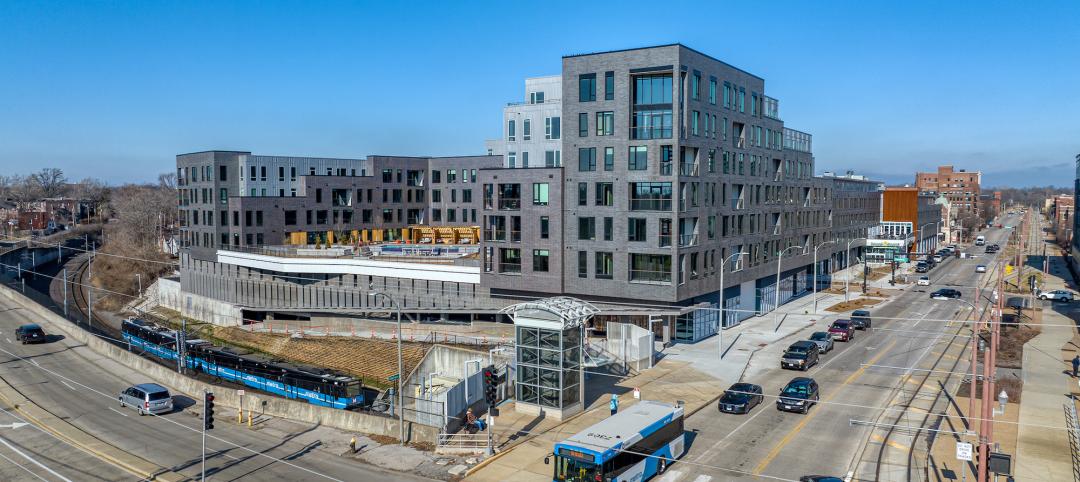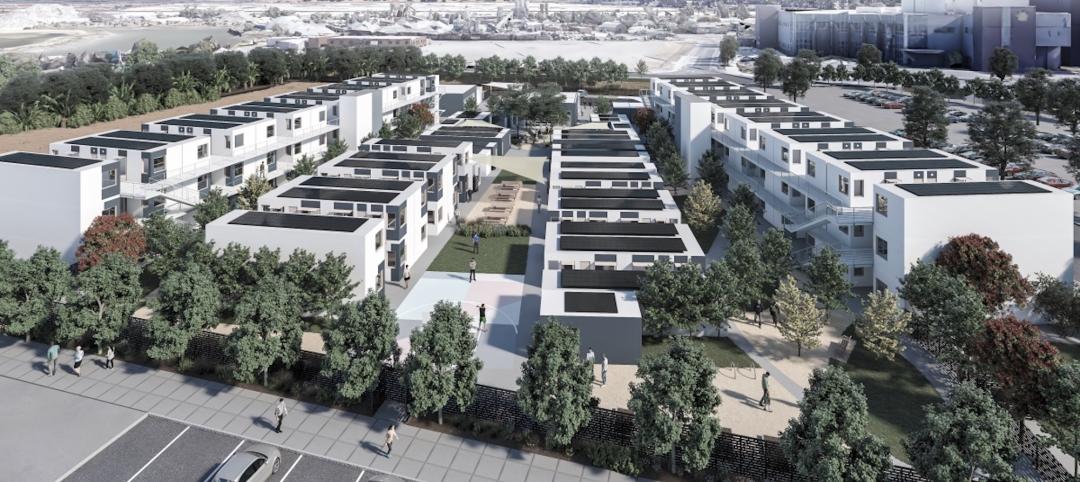While 3D building information modeling (BIM) and digital prototyping have taken away the need for physical shop-built models and created whole new workflows for architects and engineers, clients and authorities with jurisdiction still want physical models to exhibit at planning hearings and show to prospective commercial building tenants or condo unit buyers.
Until recently, most 3D printers cost upwards of $40,000. Burlington, Mass.-based Z Corporation recently introduced the ZPrinter 150 (grayscale only; $14,900) and ZPrinter 250 (CMYK color; $24,900). Compare those prices to Z Corp's own ZPrinter 450, at $45,000.
These new machines are aimed at small architecture studios and firms that want to print their own design iterations to enable closer study of design options while also enhancing communication between project team members and owners. AEC firms can now provide resin-printed 3D color models from any CAD file at greatly reduced cost, due to the lower prices of the latest 3D printers and their associated production materials.
Rather than using polymers or other manufacturing materials, Z Corp's machines use an inkjet printing system based on Hewlett-Packard technology. Here's how it works: A 3D CAD file is imported into the Zeditpro software (included with the printer). The software slices any CAD or BIM file into thin cross-sections and feeds them into the 3D printer. The printer creates the model one layer at a time by spreading a layer of gypsum-based powder and inkjet printing binder into the cross-sections of the model. The process is repeated until every layer is printed.
This is the only 3D printing technology that allows full-color CMYK printing. This method is faster than other additive processes and much, much faster than subtractive prototyping, in which a block of material is carved into shape. Other more costly 3D printing technologies employ either selective laser sintering, which uses heat to fuse metal or plastic elements, or digital light projection, wherein a liquid polymer is exposed to light from a DLP projector under safelight conditions to harden it into a plastic. One printer even uses fused sugar as its printing material.
"Both the ZPrinter 150 and 250 can use any CAD package that can export into the STL file format, and they offer everything the other machines do, just with a smaller package and a little more build time," said Joe Titlow, Z Corporation's VP of product management.
Titlow said the ZPrinter 250 "borrowed a lot" from the ZPrinter 450. "Since the 450 came out in 2007, we've come to understand how to further miniaturize its internal vacuum system, the internal feeder hopper, and its fluid systems, which are self-contained and cartridge-based. All of those technologies have been optimized for this lower-cost package."
One difference between the two generations of printers is that the 250 does not have a side-mounted de-powdering unit with a compressed-air blower, as the 450 does. The resin build material for a 3D model has also gone down in price over the last three years. Powder and binding materials for a Z Corp inkjet-style 3D printer would cost about $3-$5 per cubic inch for a machine owner, according to Impact 3D Models, a Chicago-based 3D modeling company that produces all of its models from a ZPrinter 650. That's down from more than $7 a cubic inch as recently as 2007.
"Everything in the build is variable from project to project," said Matthew Mondo, Impact's VP. "Some models that require more binding material can be more costly, and some shapes require more powder to make." Depending on the complexity of the model, he said, a finished product can run up to $30 per inch, "but it really all depends on what you're looking for."
Mondo said his firm is seeing an uptick in retail layout and MEP modeling work. Clients include TME, a Little Rock, Ark., MEP firm, and construction manager/general contractor Hill International.
Making the file exchange
Three-dimensional geometry is easily transferred from CAD and BIM applications to 3D printers because STL, the file format nearly all of these systems use, is a generic file interchange that many 3D modeling applications can produce and many software packages can consume. Software packages from a wide variety of manufacturers, including AutoCAD, Revit, Solidworks, and Bentley Microstation, can all be easily converted into STL files.
Autodesk has made a free STL exporter for its Revit BIM platform available as a technology preview on its Autodesk Labs testing website. The Revit STL Exporter automates the process of turning a Revit file into an STL file for any of the 2010 Revit family of products (Revit Architecture 2010, Revit MEP 2010, Revit Structure 2010).
Kelcey Lemon, senior technical marketing manager for Building AEC Solutions at Autodesk, said interest in 3D printing among AEC firms is growing, particularly to aid in the visualization and comprehension of design proposal.
Related Stories
Giants 400 | Feb 6, 2023
2022 Religious Sector Giants: Top architecture, engineering, and construction firms in the U.S. religious facility construction sector
HOK, Parkhill, KPFF, Shawmut Design and Construction, and Wiss, Janney, Elstner head BD+C's rankings of the nation's largest religious facility sector architecture, engineering, and construction firms, as reported in the 2022 Giants 400 Report.
Giants 400 | Feb 6, 2023
2022 Justice Facility Sector Giants: Top architecture, engineering, and construction firms in the U.S. justice facility/public safety sector
Stantec, DLR Group, Turner Construction, STO Building Group, AECOM, and Dewberry top BD+C's rankings of the nation's largest architecture, engineering, and construction firms for justice facility/public safety buildings work, including correctional facilities, fire stations, jails, police stations, and prisons, as reported in the 2022 Giants 400 Report.
Giants 400 | Feb 6, 2023
2022 Parking Structure Giants: Top architecture, engineering, and construction firms in the U.S. parking structure sector
Choate Parking Consultants, Walker Consultants, Kimley-Horn, PCL, and Balfour Beatty top BD+C's rankings of the nation's largest parking structure sector architecture, engineering, and construction firms, as reported in the 2022 Giants 400 Report.
Market Data | Feb 6, 2023
Nonresidential construction spending dips 0.5% in December 2022
National nonresidential construction spending decreased by 0.5% in December, according to an Associated Builders and Contractors analysis of data published today by the U.S. Census Bureau. On a seasonally adjusted annualized basis, nonresidential spending totaled $943.5 billion for the month.
Giants 400 | Feb 3, 2023
Top Workplace/Interior Fitout Architecture, Engineering, and Construction Firms for 2022
Gensler, Interior Architects, AECOM, STO Building Group, and CBRE top the ranking of the nation's largest workplace/interior fitout architecture, engineering, and construction firms, as reported in Building Design+Construction's 2022 Giants 400 Report.
Multifamily Housing | Feb 3, 2023
HUD unveils report to help multifamily housing developers overcome barriers to offsite construction
The U.S. Department of Housing and Urban Development, in partnership with the National Institute of Building Sciences and MOD X, has released the Offsite Construction for Housing: Research Roadmap, a strategic report that presents the key knowledge gaps and research needs to overcome the barriers and challenges to offsite construction.
Steel Buildings | Feb 3, 2023
Top 10 structural steel building projects for 2023
A Mies van der Rohe-designed art and architecture school at Indiana University and Morphosis Architects' Orange County Museum of Art in Costa Mesa, Calif., are among 10 projects to win IDEAS² Awards from the American Institute of Steel Construction.
Multifamily Housing | Feb 2, 2023
St. Louis’s first transit-oriented multifamily development opens in historic Skinker DeBaliviere neighborhood
St. Louis’s first major transit-oriented, multi-family development recently opened with 287 apartments available for rent. The $71 million Expo at Forest Park project includes a network of pathways to accommodate many modes of transportation including ride share, the region’s Metro Transit system, a trolley line, pedestrian traffic, automobiles, and bike traffic on the 7-mile St. Vincent Greenway Trail.
Giants 400 | Feb 2, 2023
2022 Convention Center Sector Giants: Top architecture, engineering, and construction firms in the U.S. convention and conference facilities sector
Clark Group, EUA, KPFF, Populous, TVS, and Walter P Moore top BD+C's rankings of the nation's largest convention and conference facilities architecture, engineering, and construction firms, as reported in the 2022 Giants 400 Report.
Multifamily Housing | Feb 1, 2023
Step(1) housing: A new approach to sheltering unhoused people in Redwood City, Calif.
A novel solution to homelessness will open soon in Redwood City, Calif. The compact residential campus employs modular units to create individual sleeping units, most with private bathrooms. The 240 units of housing will be accompanied by shared services and community spaces. Instead of the congregate dorm-style shelters found in many U.S. cities, this approach gives each resident a private, lockable, conditioned sleeping space.



